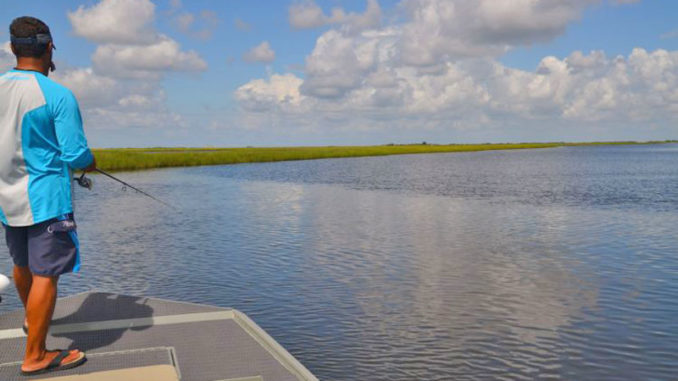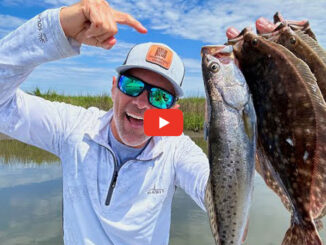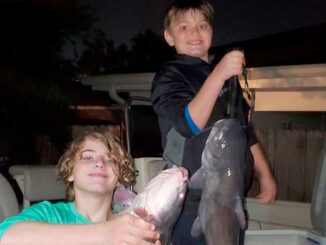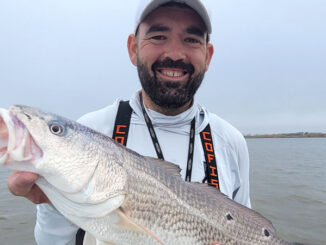
Transition time is baffling and discouraging to fishermen who are accustomed to speckled trout staging in one area, as they do in summer and mid-winter. Some otherwise avid trout fishermen just give up and spend September watching early-season football games.
But that doesn’t have to be, according to Capt. Chad Billiot.
Once fishermen have shifted their thinking away from major lakes and bays near the coast and to shallow brackish marshes, not catching specks is usually due to one or more mistakes people make.
Capt. Chad’s Seven Deadly Sins
1) Fishing too deep. Many fishermen believe that as soon as they feel the least little north wind, they should fish deeper canals and channels. Not so.
2) Not making enough noise. A popping cork is designed to make noise. A lot of people use them like bobbers.
3) Working a popping cork wrong. Some people fish a popping cork with an almost steady retrieve. It should be pop; pause; pop; pause. The cork gets the fishes’ attention; the bait hooks them.
4) Using jigheads that are too heavy. A lighter jighead, or better, a weighted hook will result in more hook-ups. The fish will swallow the bait better and so have less leverage to shake the hook out of its mouth at the surface.
5) Overlooking the obvious. When a fisherman sees something different, the least little bit, they should stop and fish it. It may be a highway. Give it 5 or 10 minutes and a few pops.
6) Not making long enough casts. There is no such thing as too long of a cast. Covering as much water as possible is important. That is why braided lines are important. That is where a spinning reels is good — the thin line doesn’t dig into the spool.
7) Using live bait. Use artificials. Live bait slows down fishermen. They have to fish it out of the well and they have to fish it slower.


